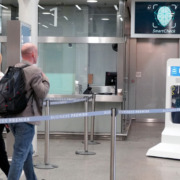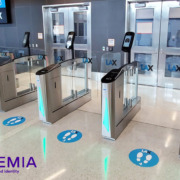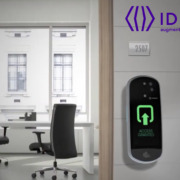In an era where technology shapes our daily lives, the transportation sector is not left behind. The future is taking shape today with the introduction of the first corridor for facial recognition dedicated to train travel.
Biometrics: The Key to an Enhanced Customer Experience
The Eurostar, the famous rail link between the UK and mainland Europe, has taken a significant step in enhancing the customer experience. Its terminal at St Pancras station in London has launched a facial recognition system – the very first of its kind for train travel. Named SmartCheck, this innovative system promises a revolution in transit fluidity.
By downloading a simple app, passengers can verify an ID, scan their face, and register their tickets. Hence, once they arrive at the station, they simply walk through a dedicated corridor without having to stop for a manual ticket check or a border inspection by UK customs officers. It promises smoother travel, with less waiting and more comfort.
Technology at the Service of Everyone
Although this innovative service is currently reserved for Eurostar’s Business Premier and Carte Blanche passengers, the company plans to expand this system to all its customers. A new era is beginning, offering every traveler the opportunity to benefit from this cutting-edge technology. This system could even be adapted to other venues like stadiums, concerts, and any places hosting large numbers of people.
Security and Privacy: Major Concerns
The rise of biometrics inevitably raises questions about the security and privacy of personal data. However, iProov, the British company behind the SmartCheck system, ensures that the data is stored on the traveler’s phone and encrypted during transactions. Moreover, information is shared with passport control services only after verification and is deleted after 48 hours.
In conclusion, the future of travel might well be shaped by this innovative technology. The Eurostar has taken a bold step towards transforming the customer experience, while addressing security and privacy concerns. Biometric corridors might well be the next big leap in frictionless travel.





